Last week, I wrote a piece entitled “There is no Cyberspace,” where I argued the today’s World Wide Web bears little resemblance to the thing that cyberpunk authors like William Gibson imagined as cyberspace. I explained that Gibson defined cyberspace as a “consensual hallucination” and proceeded to argue that the Web was neither consensual nor hallucinatory. I noted that even Gibson himself acknowledges that the cyberspace concept is outmoded—that, rather than being sucked into the world behind the screen, computers have “everted,” overlaying the physical with the digital. I concluded that the term “cyberspace” confounds our ability to makes sense of a social Web that has very real consequences in our lives because it evokes images of fantastical space apart from reality that we can enter and exit at our leisure. The piece received thorough feedback and critique in posts by Mike Bulajewski (on his Mr. Teacup blog) and Jeremy Antley (on his Peasant Muse blog), which has encouraged me to further develop my argument.
My claim that the “cyberspace” misleadingly evokes elements of fantasy left room for possible confusion insofar as I failed to define what I meant by fantasy. Bulajewski, for example, attempted to invert my argument, making a sort of post-Modern claim that “there is only cyberspace” because both our individual psyches (à la Sigmund Freud) and our collective consciousness (à la Emile Durkheim) mediate and interpret experience through the lens of our history, memory, traumas, etc. As Immanuel Kant (and his sociological successor Georg Simmel) explained long ago, there is no access to “real,” unmediated experience—all subjective input is filtered through the pre-existing structures of our consciousness. Bulajewski wants to call all experience “fantasy” because it is historically and culturally relative. Perhaps this is an important distinction in an arcane philosophical context, but I’m rather more concerned with what people actually mean when they say “real” in the context of the Web, as in: “real” life vs. cyberspace.
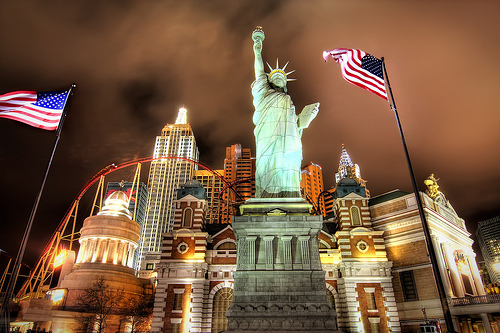
What do we mean when we say “the real?” Why is it generally stated in a positive tone, while “the virtual” or “cyberspace” is generally stated in a negative tone? What does this reveal about our present historical moment? These are the question that concern me. I think the social theorist Jean Baudrillard has a lot to offer to this conversation. In his (1981/1994) classic book, Simulacra and Simulation, Baudrillard contrasts the real to its simulations. Baudrillard never actually does a great job at defining the real—mostly because he’s convinced it no longer exists—but we can generally gather that he (and the culture he is describing) interpret the real variously as that which is organic, original, indigenous, non-rationalized, undiscovered, and undisturbed. The real invokes a romanticized vision of the primitive or the pre-Modern. Baudrillard opines that the real has been supplanted by various layers of simulation; he explains that there are four orders of such simulations:
[1.] it is the reflection of a profound reality;
[2.] it masks and denatures a profound reality;
[3.] it masks the absence of a profound reality;
[4.] it has no relation to any reality whatsoever; it is its own pure simulacrum.
Here’s where the confusion arises. I claim that we wrongly perceive the Web as a fantasy, a simulation called “cyberspace,” but I did not specify what order of simulation I was referring too. I believe Gibson (an other cyberpunk authors) were offering us an enlightening and engaging second-order simulation that tweaked and distorted reality through the lens of fiction. The cyberpunk authors demonstrated a profound ability to reveal important aspects of the present through an imagined future; they tapped into what Marshal McLuhan recognized as artist’s capacity to recognize important patterns emerging in the present (more on that below) such as the fact that the our culture was increasingly organizing itself around a perceived divide between physical and the digital. Importantly, however, Gibson and his peers avoided conflating fantasy and reality by setting their stories at some ambiguous future date, thus the images they present (including that of cyberspace) do not originate as third-order simulations (i.e., fantasy masquerading as reality); rather, something drove us, as a culture, to move from interpreting cyberspace as a matter of science fiction and toward an interpretation of cyberspace as a matter of science fact—to say, “hey, that Web thing we’re all doing now, that’s a separate, virtual world: a space set apart from the real.” This cultural movement to characterize the Web through the fantasy of cyberspace does violence to the very real social relationships that flow on and off the Web; it posits them as otherworldly and, as such, inessential to our lives.
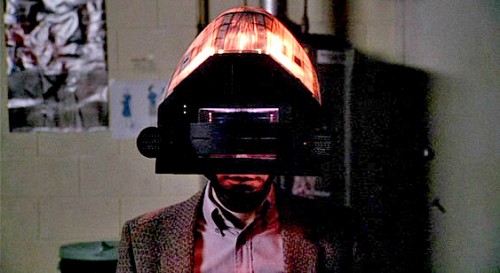 Why is it, then, that we are so prone to denial and self-deception when it comes to the role that the Web plays in our culture? I believe that accepting the Web as integral to the fabric of reality threatens comfortable assumptions about our natures, about the essence of the self and its authenticity, and about our romantic conceptualization of the human soul. If the Web is enmeshed in every aspect of human life and we accept that the Web is real, then we must conclude that every aspect of our lives are synthetic—that nothing is “real” in Baudrillard’s romantic conceptualization of the term. McLuhan once presented just such a vision in televised debate:
Why is it, then, that we are so prone to denial and self-deception when it comes to the role that the Web plays in our culture? I believe that accepting the Web as integral to the fabric of reality threatens comfortable assumptions about our natures, about the essence of the self and its authenticity, and about our romantic conceptualization of the human soul. If the Web is enmeshed in every aspect of human life and we accept that the Web is real, then we must conclude that every aspect of our lives are synthetic—that nothing is “real” in Baudrillard’s romantic conceptualization of the term. McLuhan once presented just such a vision in televised debate:
Whenever a new environment goes around an old one there’s always new terror… When you put a man-made environment around the planet, nature from now on has to be programmed… the [new man-made] environment is not visible, it’s electronic.
Moreover, McLuhan proceeded to offer what could be interpreted as and explanation of why Baudrillard simply recoiled from this new, heavily-mediated environment, while Gibson is capable of providing an nuanced account of how one might come to terms with inhabiting such a world:
Every age creates as a Utopian image a nostalgic rear-view image of itself, which puts it thoroughly out of touch with the present. The present is the enemy… The present is only faced in any generation by the artist… The artist is prepared to study the present as his material because it is the area of challenge to the whole sensory life and therefore it’s anti-Utopian… it’s a world of anti-values and the artist who comes in contact with the present produces an avant garde image that is terrifying to other contemporaries…
Additionally, McLuhan explained that
Information overload produces pattern recognition… When give people too much information, they instantly resort to pattern recognition—in other words, to structuring the experience. And, I think this is part of the artist’s world. The artist, when he encounters the present… is always seeking new patterns, new pattern recognition, which is his task, for heavens sake. His great need—the absolute indispensability of the artist—is that he alone, in the encounter with the present, can give the pattern recognition. He alone has the sensory awareness to tell us what the world is made of.
As an artist, Gibson engages in pattern recognition, managing to observe not only the increasing interplay between physical and digital but also our latent anxieties about a world that moves between the two. For example, Gibson provokes us confront to deep philosophical tensions in our belief that identity rests both in the unity of body and mind and in a transcendent soul, by challenging us to imagine a world where mind can be separated from a living body and can inhabit new bodies. Where, then, does the self reside? Can the self be split? Copied? Can identity take physical manifestations outside of the body. Can identity take immaterial manifestations in the absence of or beyond the body?
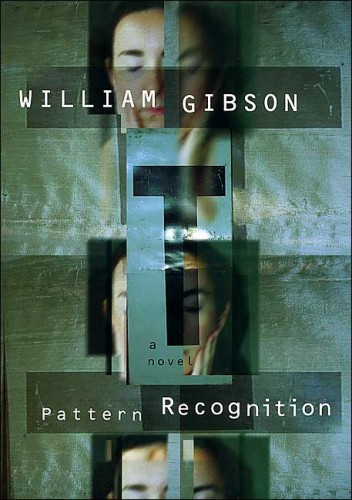
As an artist, Gibson’s role is not so much to provide answers but to articulate the problem. He concedes: “we live in an incomprehensible present… I’m not really trying to explain the moment, I’m just trying to make it accessible.” His fiction conjures the very aspect of the present that we are least equipped to handle and gives it name (i.e., “cyberspace”). He takes our deep-seated informational/material dualism to its logical conclusion and makes these ideas manifest in a world of fantasy. In so doing, he gives us a reference point against which we can contrast our own present experience. what we discover, in retrospect, is that the world he develops on the basis of our dualist assumption bears little resemblance to our own. Once this gulf between ideas and experience is laid bare, we are left with two choices: get new ideas, or escape to a new world. We have tried desperately for several decades to accomplish the latter. Rather than confronting the shortcomings of our ideas, we have asserted that Gibson’s fantasy of cyberspaces is real. We have sought replace reality with fantasy, and in so doing, we have denied existence of the mixed/blended/mediated/augmented reality that we truly inhabit. This has led to a state of pessimism and despair for Baudrillard and others who mourn the loss of reality altogether.
The alternate, of course, is to simply accept the idea that the real is synthetic as theorists such as Donna Haraway council. Haraway famously voiced her opposition to the pessimistic romanticism of Baudrillard and company when she concluded: “Cyborg imagery can suggest a way out of the maze of dualisms in which we have explained our bodies and our tools to ourselves… Though both are bound in the spiral dance, I would rather be a cyborg than a goddess.” The goddess, here, represents the romantic view of identity, where identity arises out of an opposition between binaries; on the other hand, the cyborg is a creature of context that continually renegotiates its identity in the space between supposed opposites (most pertinent in this case, the opposition between the physical and the digital). We must learn to embrace an augmented, cyborg reality, characterized by synthetics, copies, colonization, (de-)rationalization, reflexivity, and networked interactions.
Ever ahead of the curve, Gibson, himself, has embraced the view that the digital and the physical occupy the same space:
Cyberspace, not so long ago, was a specific elsewhere, one we visited periodically, peering into it from the familiar physical world. Now cyberspace has everted. Turned itself inside out. Colonized the physical.
Similarly, he contends that:
Cyberspace is colonising what we used to think of as the real world. I think that our grandchildren will probably regard the distinction we make between what we call the real world and what they think of as simply the world as the quaintest and most incomprehensible thing about us.
And that “[t]he non-mediated world has become a lost country… the mediated world is now the world.” Perhaps most provocatively, Gibson has claimed that his own neologism has outlived its usefulness:
Cyberspace might one day be the last usage of the prefix ‘cyber,’ because, I think, “cyber” is going to go the way of the prefix “electro.” We don’t use the prefix “electro” in pop-cultural parlance much anymore… it being taken for granted that most things are electrical. And, I think, at this point, it could be taken for granted that most things are computerized.
This critique of digital dualism, however, does not imply that the interchanges between the physical and the digital are “frictionless.” I am not seeking to promote a naive Utopianism. As Haraway says: “This is not some kind of blissed-out technobunny joy in information.” Antley, for example, rightly observed that elements of our synthetic identity are prone coming out of sync. This experience can be quite alarming. We all likely have stories of logging on to find uncomfortable images or other documents about us posted without our knowledge; panic ensues as we attempt restore and re-sync our online profile. Similarly, many of us have also probably found ourselves lost because reception on our phone or GPS cut out. Antley argues:
If we accept the premise that the Web is reality, then we must also accept that primary loss of connection to the web will create asynchronous gaps between our experience and the experience pervasively documented on the web.
Moving beyond the dualism of “cyberspace” does not mean escaping the difficulties of our mediated lives; rather, it is merely step towards better identifying and negotiating such issues. And, if the past is any indicator, we are well-advised to be on the lookout for new works of art that will aid us in better identifying the problems of our present reality and the anxieties they will surely provoke.
Follow PJ Rey on Twitter: @pjrey

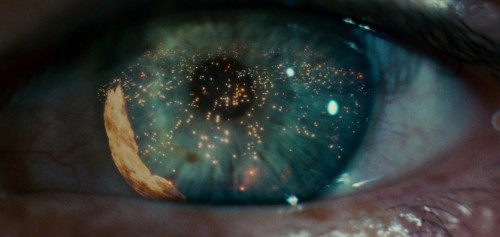

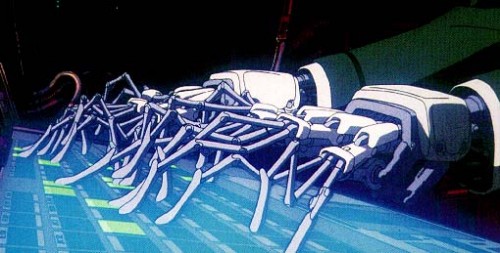
Comments 3
Spyvie Locust — February 9, 2012
Interesting.
I have just recently encountered this phenomena whereby exceptionally intelligent people are creating an entire mythology around a natural extension of the written word. Please forgive me if I'm simply restating the obvious.
Tech is built into us, it is a part of our nature. The interwebz and beyond are a human inevitability. I believe we are literally the children of God in this respect. This our reality.
Everything we experience with our individual perceptions is reality, the same unified singular reality. In a very real sense, if we could build another reality, by inhabiting it we would lose our place in this reality.
If we can perceive it, its our reality, all the same one. We don't forget what we experienced online when we are offline, it just gets added to our worldview, to our consciousness, to our single reality.
This is not to say that our newer better view of reality with its mind boggling communication possibilities won't be the spark of incredible social change, just saying that change will take place in the very same single continuous reality that we have always existed in.
Michael Fischer — February 11, 2012
There is something to the notion that all of reality is a fantasy. But what belies this as an argument for a separate ‘cyberspace’ is that we are talking about shared experience, whether it is shared with a few or many.
Gibson had it about right in his comment:
Cyberspace is colonising what we used to think of as the real world. I think that our grandchildren will probably regard the distinction we make between what we call the real world and what they think of as simply the world as the quaintest and most incomprehensible thing about us.
I think the grandchildren already do. Today in my Social Computing seminar I was once again bemoaning the rather misleading and lousy names for what has more recently been referred to variously as digital anthropology, cyberanthropology and online anthropology. I was casting bait, as I had for the previous 26 years of teaching this seminar or its ancestors, and for the first time in 27 years one of the students ran with it. He commented, “why do we need to call it anything at all? Why not just social anthropology or just anthropology? “ The discussion that ensued was happy with this development.
There is no doubt that many of the representations on the internet represent real fantasy. But by making these concrete, they become just another experience to share. Sharing requires foundation, and foundation implies a common ‘reality’ within which to situate it. It’s all one reality, its just that some people are ignorant of the foundation required to share experiences of the internet, being Choctaw, or being an anthropologist. Relativism is relative ignorance, not a collective hallucination.
The students coming along now have not integrated ‘cyberspace’ with the ‘real world’. It is the real world. They enter a world where most of their teachers are still uncomfortable with the web and its resources, and have not caught on to how information is disseminated in this ‘real world.’ But even though this may represent some kind of dialectical relationship between the reality of students through shared experience and the reality of their teachers through shared ignorance, this does not suggest that their teachers have cyberspace, and they do not, any more than we would suggest that any particular group, through their ignorance of anything, inhabits a different world. They do have a different experience, and this different experience impacts some component of sharing in resulting representations, but at the same time these are not parties that are alien to each other. Students share more experience in this respect because they have more experience. Their teachers only share ignorance.
The Real and the Loss of Cyberspace « PJ Rey's Sociology Blog Feed — February 14, 2012
[...] Originally posted on Cyborgology. [...]